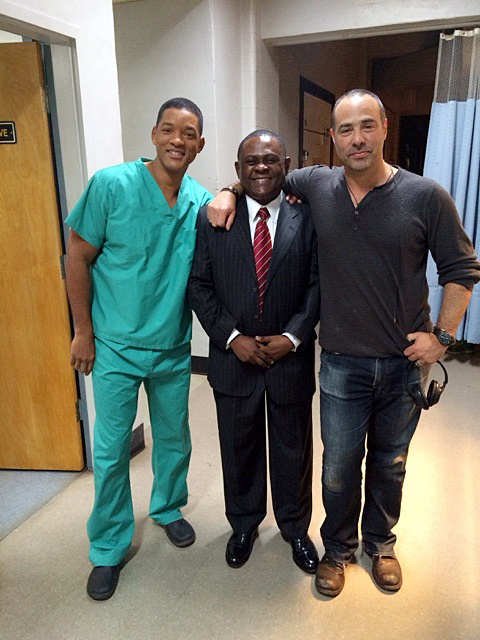Doctor who inspired 2015 film to speak about his research

Dr. Bennet Omalu will speak to OSU students on Feb. 18 at the Ohio Union. Credit: Courtesy of Michael D’Andrea
The researcher credited with discovering a brain disease that afflicts football players is coming to Ohio State. Dr. Bennet Omalu, the man on which the film “Concussion” is based, will speak at 7:30 p.m. Thursday in the Ohio Union.
About 96 percent of former NFL players who took part in a study by the Department of Veterans Affairs and Boston University showed signs of chronic traumatic encephalopathy. Experts think the head-trauma-induced disease has caused the deaths of several players.
The Ohio Union Activities Board is sponsoring “A Conversation with Concussion’s Dr. Bennet Omalu” in the Archie M. Griffin Ballroom.
Omalu said he has been to Ohio several times while he was living in Pittsburgh, and added that he is excited to come back.
“I heard (OSU has) one of the biggest football programs in the country,” he said.
CTE was discovered after the death of a former football player, Mike Webster, in 2002. Omalu performed the autopsy and was determined to find the cause of death in Webster’s brain. In 2005, Omalu published his findings.
CTE is a degenerative disease that has been found in people who have taken at least one severe blow to their head. This puts football players, boxers and other contact-sport athletes at the highest risk.
Initially, Omalu’s findings were not widely accepted, but the NFL recognized CTE in 2009.
Omalu was born and raised in Nigeria and moved to the U.S. to attend medical school.
“When I came to this country, I did not know anything about football; I did not know anything about the NFL,” Omalu said.

From left to Right: Will Smith, Dr. Bennet Omalu, and Peter Landesman, the writer and director of the film “Concussion,” on set during filming. Credit: Courtesy of Michael D’Andrea
Omalu said he feels that it is his duty to educate people about concussions and CTE to help prevent it.
“I have met so many retired football players, so many of them, they are broken, they are suffering from this disease and some of them are crying on the phone that, ‘I wish I knew, I wish I had known,’” he said.
Omalu said he believes that rules and restrictions need to become safer with sports, especially when children are involved, since they might feel compelled to play because of societal expectations.
“A child grows up, he believes he has to play football or basketball in order to succeed in life,” he said.
Omalu said his own son does not play football because he wants to protect his brain, but that doesn’t make him anti-football but rather “pro-intelligent football.”
Nick Lennon, lecture chair for OUAB and a fourth-year in integrated systems, was in charge of putting together this event.
“As members of OUAB, we always try to bring diverse, entertaining and thought-provoking events,” Lennon said. “Dr. Omalu, we felt, hit all three of those categories.”
Lennon said he is excited to hear Omalu speak.
“He’s definitely on the cutting edge of his field, taking on a huge industry; it should be a good talk,” he said.
Omalu’s story can be seen in the movie “Concussion,” which was released on Dec. 25, with Will Smith starring as the doctor. It follows Omalu’s life story and the backlash he received after publishing his CTE research.
Tickets for Omalu’s talk are free with a BuckID and can be picked up at the first floor information desk in the Ohio Union.
Clarification: A clarification was made to this article to specify that event tickets are available at the Ohio Union information desk.


